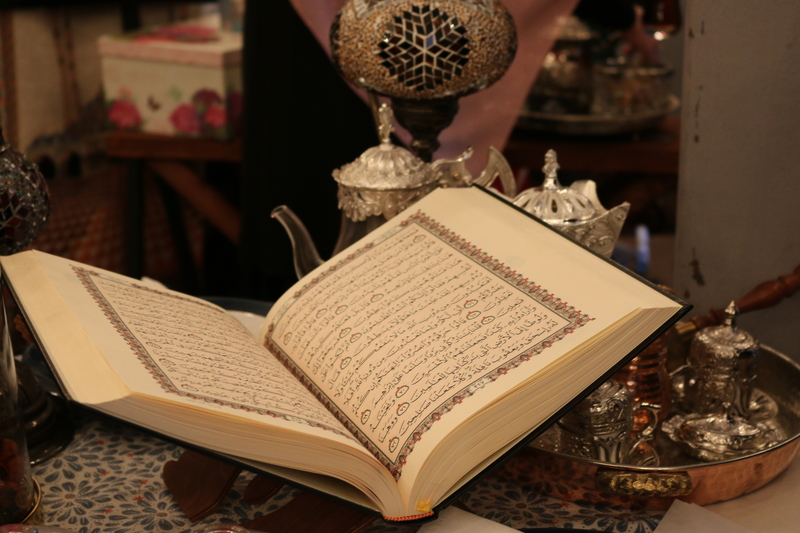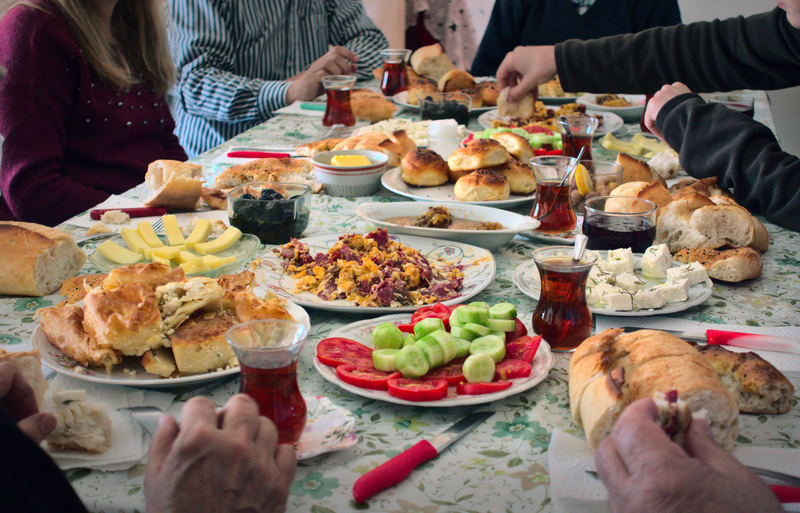During Ramadan, millions of Muslims around the world will be fasting from dawn to dusk, which will involve refraining from drinking and eating and of course through the fasting learning to be a better person. This is not always easy as when you haven’t eaten or drunk anything, it’s hard to keep your cool and ensure you are being fair, honest, humble and so on... but nonetheless that is the test for Muslims and something we all embrace and value.
The key question you might have is: what can employers, managers and colleagues do to support Muslims in the workplace who will be fasting? I have, therefore, put together a guide that should hopefully answer some common questions that arise and provide you with some further information that you might find useful.
Please note that in putting the below together I have tried to be as accurate as possible and bring together the views of Muslims from different countries, sects and groups and inevitably, considering we have over 1.6 billion Muslims in the world, I would not have managed to capture everyone’s views. However, the below guide should be a good starting point to provide you with some basic information.

So, when is Ramadan?
In 2026, Ramadan begins on 17th February. Muslims follow the lunar calendar so the exact start and end dates depend on the sighting of the moon. The festival of Eid-ul-Fitr follows Ramadan and will take place around 19th March.
What is Ramadan?
Ramadan is the name of the ninth month of the Islamic calendar. Muslims believe it is the month during which the Qur’an was revealed to the Prophet Muhammad (peace be upon him) over 1400 years ago. Ramadan is the holiest month of the year for Muslims and it is considered that the reward of good deeds during this month are multiplied several fold. During this month, from dawn until sunset, Muslims are obliged to abstain from all forms of food, drink (including water), smoking and sexual intercourse. Most Muslims will wake before dawn for a meal before the start of their fast, and break their fast with dates and water at sunset and a meal thereafter. The start and end times vary as the month progresses. Those exempt from fasting are children, the elderly, the sick or people with long-term health problems (e.g. diabetes), those travelling long distances, women during their monthly cycle, pregnant women and breastfeeding women.
Fasting during Ramadan is one of the five pillars of Islam. The overall purpose of the fast is to gain Taqwa (which means to gain piety or God consciousness). This is achieved through an increase in prayers, reading the Qur’an, self-reflection and self-discipline. Muslims are encouraged to increase their good deeds in Ramadan, from giving to charity, to increasing good values such as generosity, patience and forgiveness, with the intention that they strive to maintain these model values throughout the year.
Increase in worship
In addition to offering the five daily prayers, many Muslims spend extra time in worship in one or more of the following:
- Taraweeh prayers – These are extra congregational prayers performed in mosques each night during Ramadan. The person leading the prayer (imam) will recite the entire Qur’an from memory over the month. While the duration of the prayers is dependent on a number of factors, they last between one and two hours each night.
- Itikhaf – When someone decides to enter Itikhaf, which is a significant act of worship, they live in the mosque for the last 10 nights of Ramadan with the aim of increasing their worship to God in a focused way devoid of any distraction.
- Laylat-ul-Qadr – This is the most holy night for Muslims and is translated as the ‘Night of Power’, when Muslims are encouraged to increase their worship and some may do so throughout the night. Islamic traditions state that if this night is spent in devotion, it is equivalent to a thousand months in prayer. Laylat-ul-Qadr occurs on one of the last 10 odd-numbered nights of Ramadan, although the exact date is not known. Therefore many Muslims significantly increase their prayer and worship on the odd numbered nights of the last third of Ramadan.
End of Ramadan celebrations

Eid-ul-Fitr is the festival which marks the end of Ramadan. It is a joyous occasion and a day of true thanksgiving for Muslims. The day begins with giving to charity and prayers in the mosque, and thereafter they share celebratory meals with family and friends and exchange gifts. As with the start of Ramadan, the exact date of Eid is also dependent on the sighting of the moon.
How can you help?
This year, the end of the fast will, for most people, fall outside working hours. While many Muslims increase their worship during this month, the majority also continue with their normal duties as usual. Muslim staff may wish to have some flexibility within their work arrangements, if it can be accommodated within the operations of the business. If this is the case, flexible arrangements should be agreed and granted in accordance with local flexible working policy, and staff members must continue to work their contracted hours. Staff may also wish to take annual leave during Ramadan or to celebrate Eid. Requests for leave should be handled in the usual way, though managers should have regard for the spiritual aspect of Ramadan. Staff may wish to complete prayers that fall during the working day, at work. This would involve time to complete the ritual wash (wudu) and pray. Multi-faith prayer rooms are usually offered within many organisations. Where prayer space is not routinely available, managers may wish to consider providing a temporary space if convenient. Facilities to perform ablution should also be considered where possible.
Managers should talk to staff intending to fast as this resolves any possible concerns. To facilitate effective working relationships within teams, managers may also wish to use this guidance to brief other managers and/or team members. Please do note that not all Muslims will be fasting and this could be for various reasons and therefore it is important to be aware of this, as it can be a personal reason why a Muslim is not fasting and our good intent can end up causing embarrassment or even a feeling of isolation for those that don't fast.
What else to potentially consider
Working lunches – It would be helpful for colleagues to be mindful of holding meetings over lunch, where Muslim colleagues are not able to also join in and eat during Ramadan.
Training courses – Organisers of training courses during Ramadan may need to be mindful of any participants who are fasting, especially if a physical element is included.
Team away days – Fasting staff members may wish not to attend social events and lunches during Ramadan.
Know your team!
There are almost 3 million Muslims in the UK. While this is just under 5% of the total population, there are considerable variations across the country, and a number of urban areas with substantially higher concentrations. If you have a large number of employees it is likely that you will have some members of staff who will be observing Ramadan.
Making it clear that you are aware that Ramadan is approaching and are sensitive to the obligations it presents for some staff will encourage people to come to you if they need an adjustment to their normal working pattern or need any other support. Be aware that some Muslims who may not be observant during the rest of the year may observe Ramadan.

Raise awareness
Ensure that all employees, and in particular managers, know when Ramadan is and the impact it has on those observing it. An awareness raising campaign can have a positive impact on all staff and reduce the risk of tension or misunderstandings. This can be as simple as talking about Ramadan in team meetings and offering meetings with anyone who would like to talk about any support they need or issues they might have.
Consider small adjustments
In most cases only slight adjustments to the working day will be needed and could include the following.
Working with employees to accommodate flexible working arrangements during this period, for example allowing Muslim staff to start work early or a bit later.
Avoid arranging ‘working lunches’ or physically demanding events and if necessary try to arrange these as early in the day as possible as that will probably be the best time for Muslim staff to perform the duties and when they will have the most energy to carry out the tasks.
Where practicable, refreshment times should coincide with the breaking of the fast (known as Iftar). If it is not possible for a staff member to have a break at the time of breaking the fast, it is possible to break the fast initially with something sweet, usually a date, and a glass of water. However it would be advisable to arrange a break for them as soon as possible so they can eat a proper meal. If possible, try to be flexible about work required after sunset.
Some Muslims may wish to take leave from work for up to 3 days at the end of Ramadan for Eid Ul Fitr. Employers should recognise that such requests may be presented with little advance notice since the actual day that Eid falls on will depend on when the new moon is sighted, however at the beginning of Ramadan they will have a fairly good idea of a few dates on which Eid may fall and should at least be able to give a couple of weeks’ notice.
During Ramadan, Friday prayers (known as Jum’a) are of particular importance. Muslim are required to pray Friday prayers on time. This will normally occur around 1.00pm and last for approximately 45 minutes. Prayers are usually conducted at a local Mosque or in congregation.
Line managers should look favourably in allowing their staff to attend the prayers during this period – perhaps during their lunch break or look at flexibility with the timing of lunch.
In conclusion, the most important thing is to make sure you have the conversations with your staff to understand what their needs maybe and to show them your support. Inclusion is about allowing everyone to be their true selves and feeling that they can be as authentic as they want to be and Ramadan is a great way for organisations to show this and create a sense of belonging for their Muslim staff.
This article was originally published on LinkedIn by Asif Sadiq MBE. You can view the original article here.


Rate and Review
Rate this article
Review this article
Log into OpenLearn to leave reviews and join in the conversation.
Article reviews
Thank you for this.